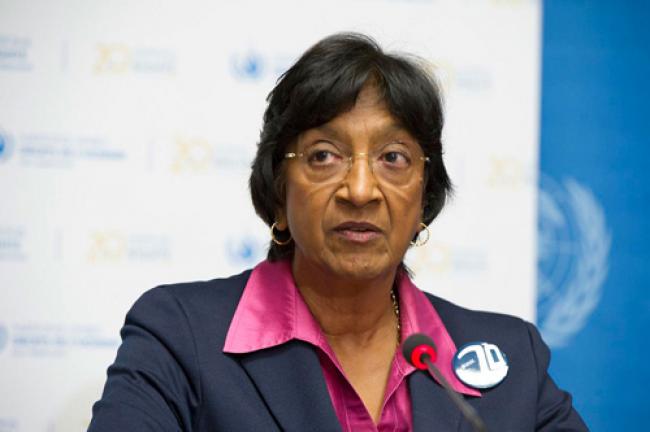07 Jan 2014, 07:27 am Print

“I now call on the Government of Nepal to urgently implement this important decision, in the spirit of working towards genuine and lasting peace, and to respect the demand of the Nepalese people for justice,” said UN High Commissioner for Human Rights Navi Pillay on Monday.
The 2006 peace accord that ended the conflict in Nepal had agreed to establish a truth and reconciliation commission to investigate human rights violations that occurred from 1996 to 2006, during which at least 13,000 people were killed and 1,300 went missing.
In March 2013, the Nepalese Government passed an Ordinance to establish the Truth and Reconciliation Commission, and sought to provide it with the power to grant amnesties for serious human rights violations.
The Court ruled on Thursday that the provisions of the Ordinance concerning amnesties, limitations on criminal prosecution and a 35-day limit for filing cases contravene fundamental rights guaranteed by the Constitution of Nepal, its justice system and international law.
It also ordered the Commission to meet international standards, including with regard to guarantees of autonomy and impartiality, and ensure the involvement and protection of victims and witnesses.
“The Supreme Court's decision to block amnesties is the first step towards ensuring the Truth and Reconciliation Commission will not be used to avoid or delay criminal investigations and prosecutions of conflict-related cases,” said the High Commissioner in the statement.
Ms. Pillay also stressed that further work is needed to reinforce criminal justice in Nepal as many serious human rights violations, including torture, sexual violence and enforced disappearances are still not properly sanctioned by domestic law.
“I call for the rapid amendment of criminal laws and procedures in line with international law,” she said.
The senior official said that her office (OHCHR) stands ready to provide support and advice to the Government throughout this process.
Image: High Commissioner for Human Rights Navi Pillay. Photo: Violaine Martin
- Viral Irish food bank photo sparks shocking racist attacks on Indians
- Caught on camera: Two foreigners assaulted in Israel in an alleged racial attack
- Pakistan: Parents heartbroken after court sides with man accused of kidnapping minor Christian girl
- Pakistan: Trafficked 35 years ago, Bangladesh-born woman approaches court against FIA for offloading her from flight!
- Hindu tea worker found bound and bloodied in Bangladesh garden during general elections; investigation underway





-1763561110.jpg)
